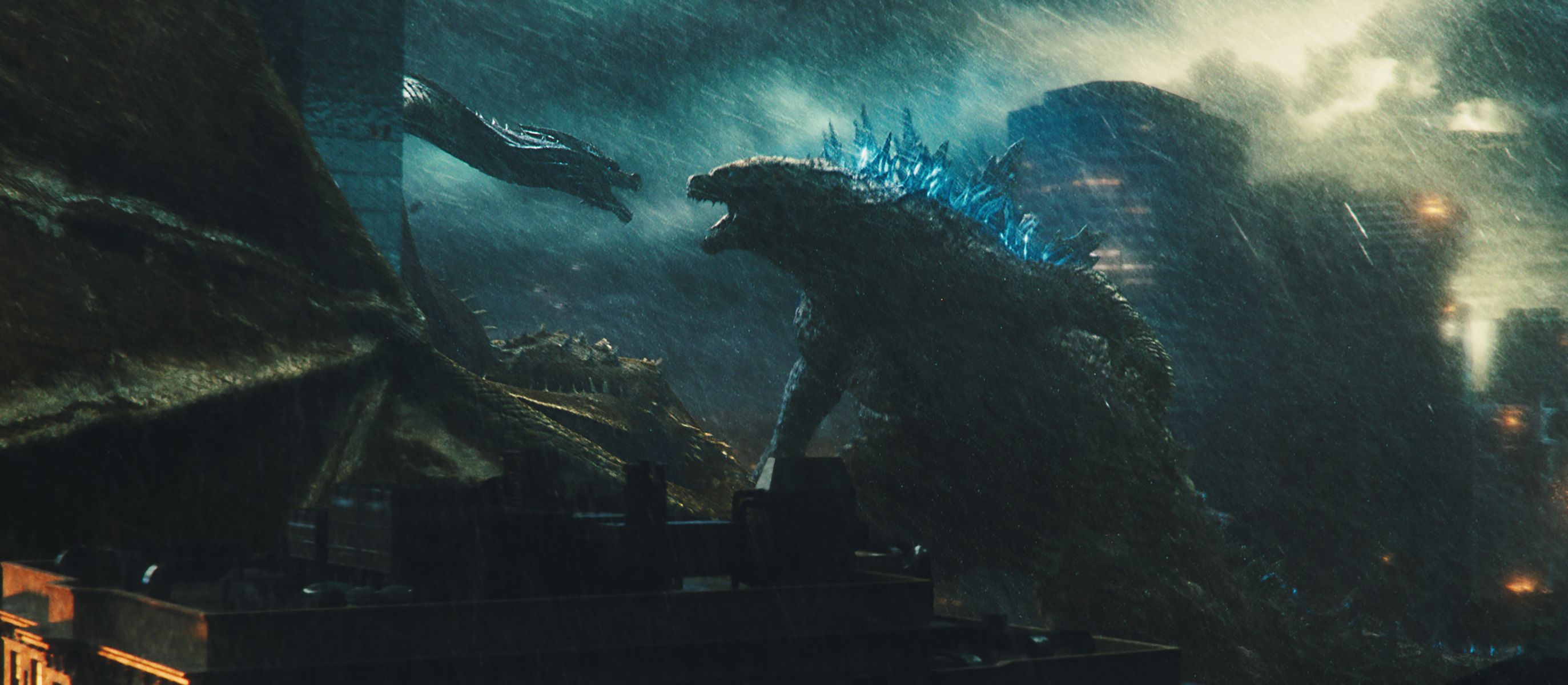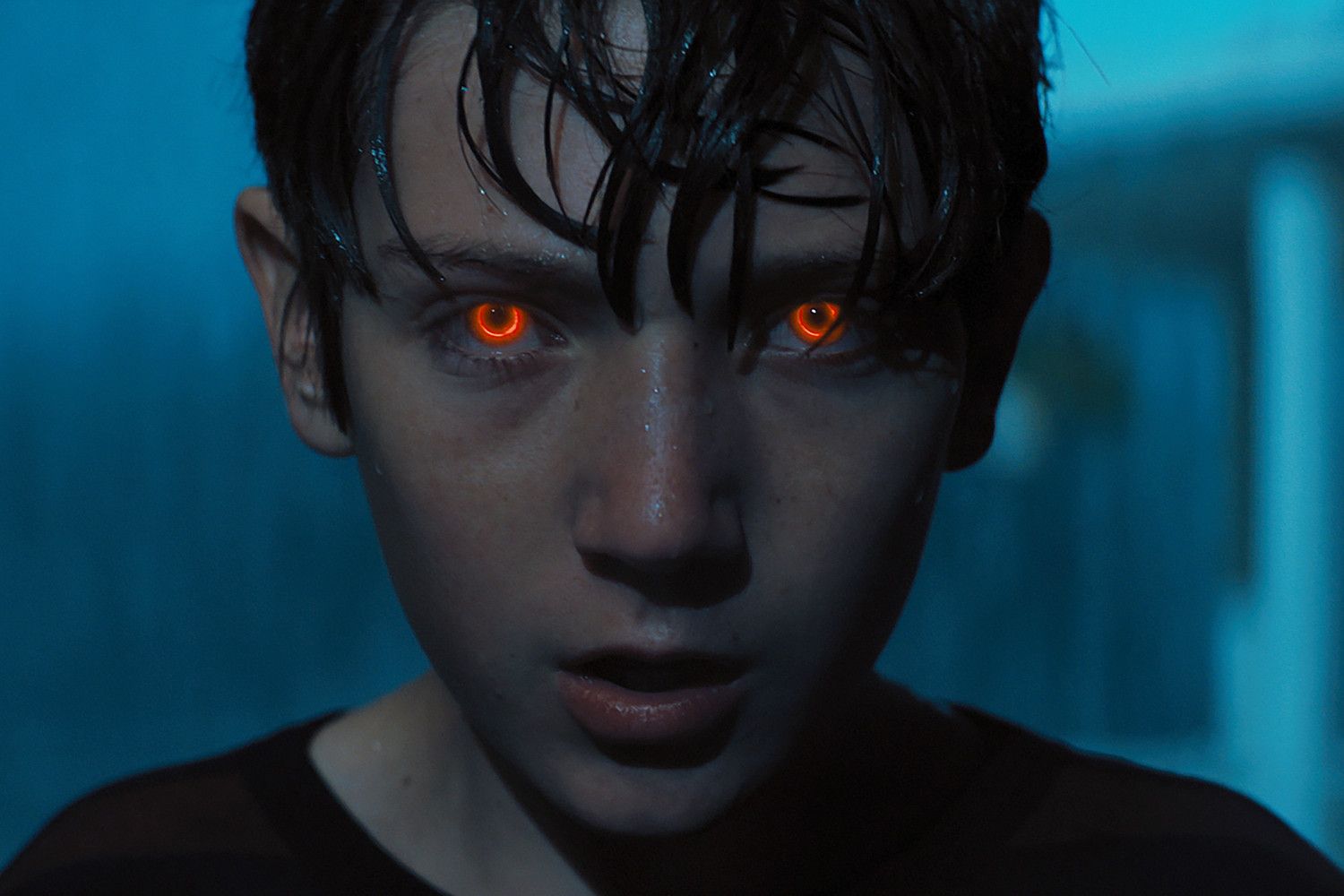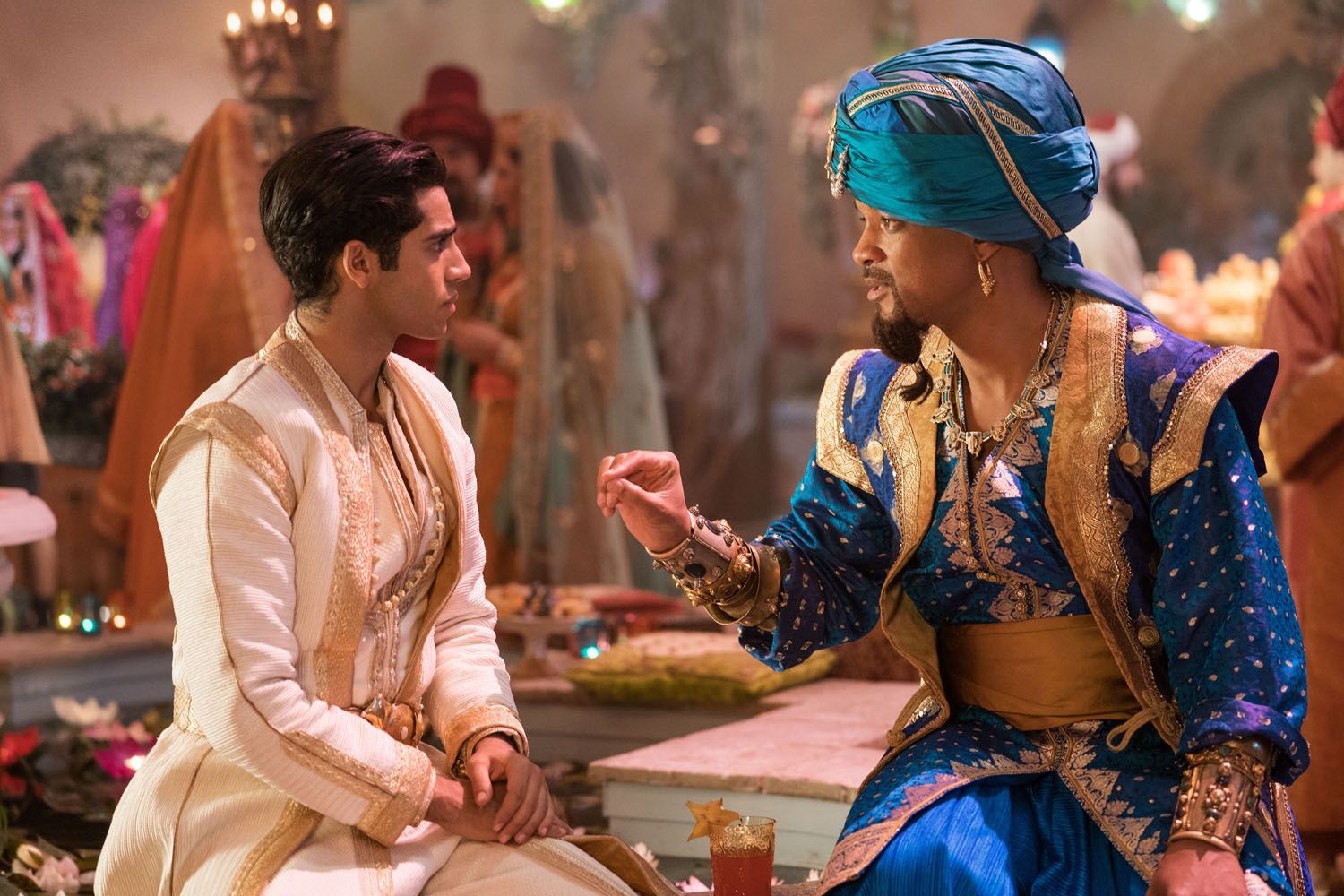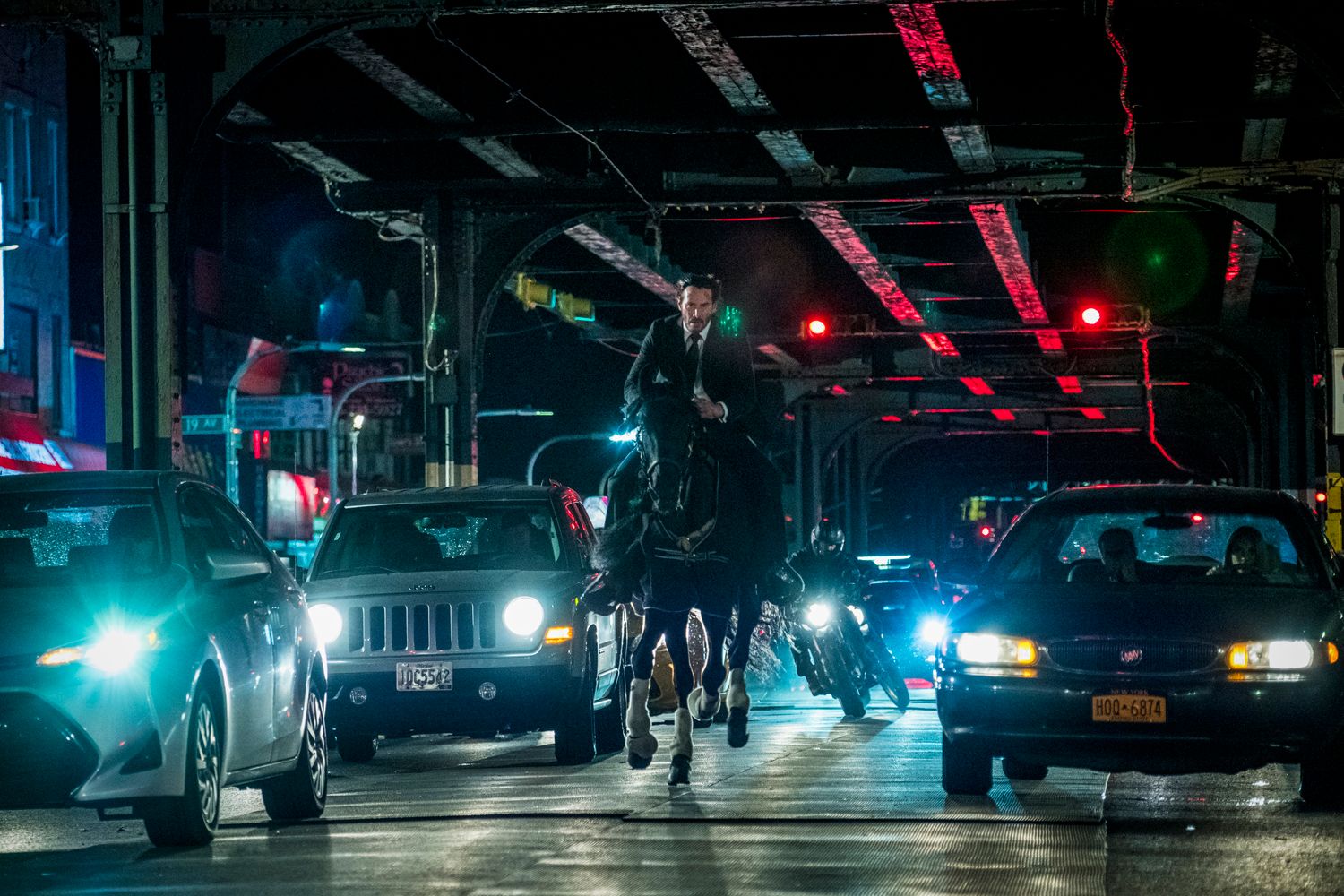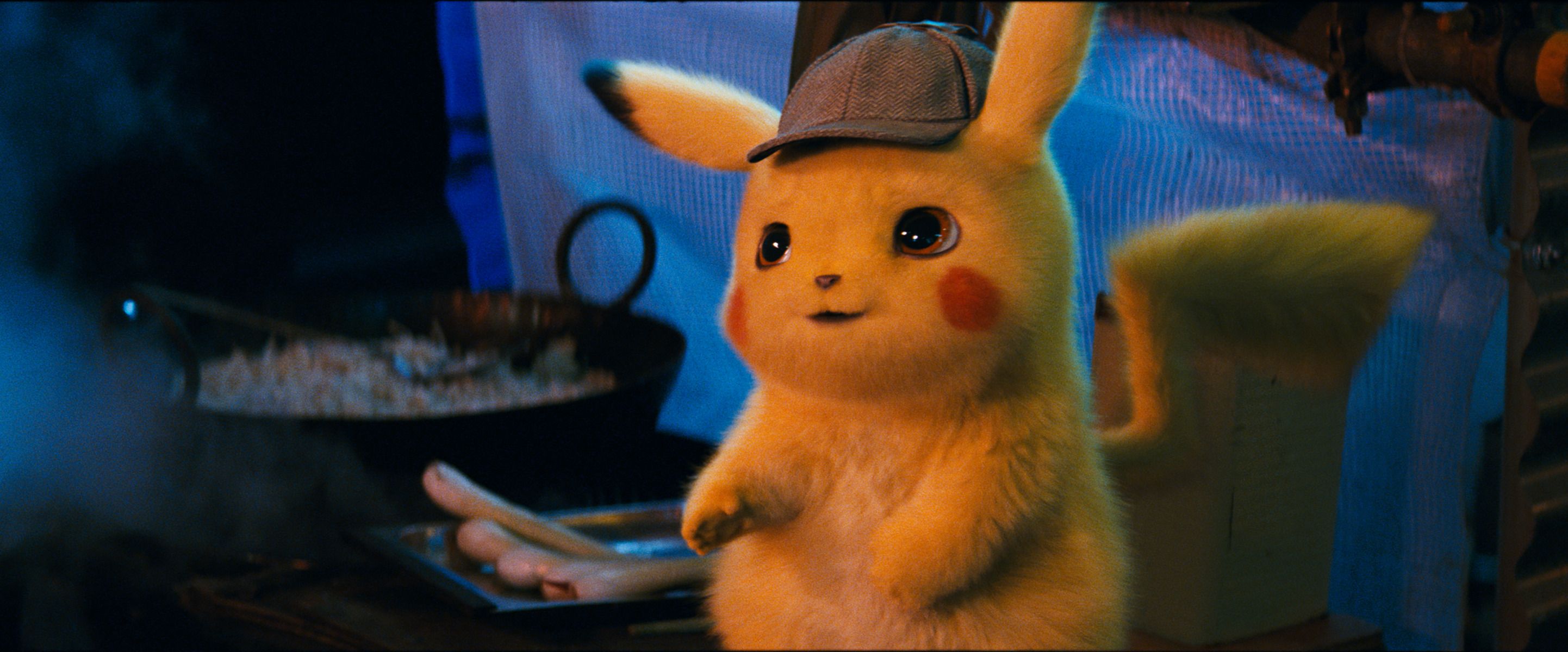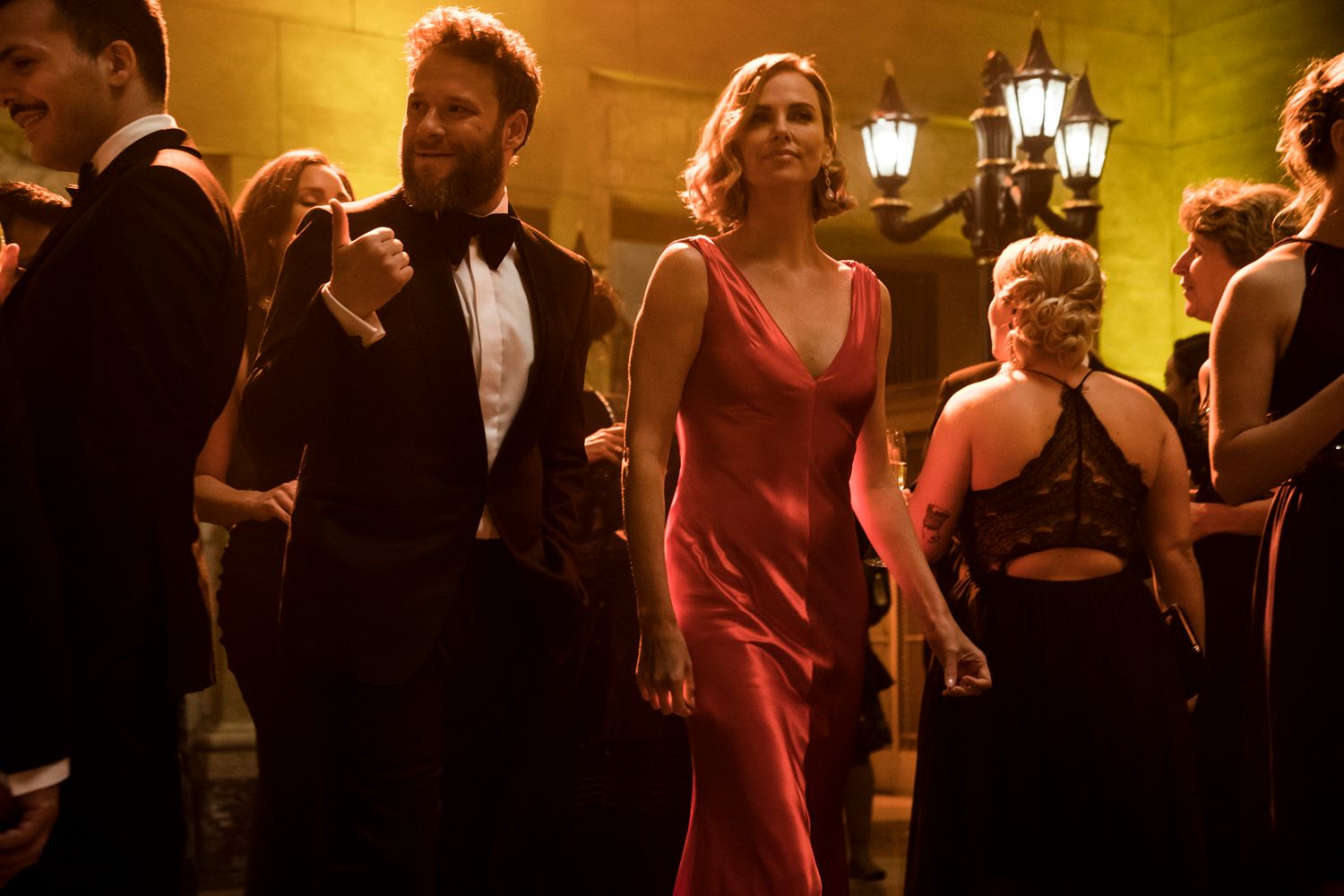Godzilla: King of the Monsters lacks the majestic poetry of the 2014 reboot to which it’s a sequel. That film drew added thrill in its awestruck horror and tightly choreographed suspense sequences by emphasizing the vulnerability and inconsequentiality of any one human in the face of an enormous monster’s rampage. Its main human characters weren’t those who could save the day; they had no control over the plot. They simply could move through the frame, dwarfed by effects in the background, as the camera peered up into oblivion. This perspective led some to claim the film erred on the side of underdeveloped characters; those who clung to this line of attack were perhaps misdiagnosing their new sense of futility in the face of what used to be man-in-a-rubber-suit monster tussling in what might have once seemed a safely quarantined atomic-age metaphor. The sequel couldn’t possibly contain this masterful shock of vulnerability and design, especially since it was reportedly conceived with the task of providing more regular doses of kaiju destruction in a more conventional style. And yet it’s of enough a stylistic piece with the earlier movie to provide a consistent spectacle of destruction.
Where this new film extends its predecessor’s concerns may not be in the poetry, but can be found in its continued emphasis on humanity’s near total inconsequential response to the emergence of these monsters. Now not just Godzilla, the world is seeing a resurgence of many beasts those of us who know and love the old kaiju pictures will recognize in new, bigger, louder, scarier modern forms, including: fire-breathing pterodactyl Rodan; enormous moth Mothra; and three-headed, lightning-spewing hydra Ghidorah. As soon as you hear that a privatized research organization (led by returning cast members Ken Watanabe and Sally Hawkins) has identified those hibernating beasts and is wrangling with the military vis-à-vis their respective threat potential, you just know these ginormous critters are going to wake up and demolish cities. You’d know this, too, because it’s the promise of a movie like this. And it does enough to satisfy that promise. Director and co-writer Michael Dougherty (Krampus) makes the inevitable a faster, more cacophonous experience, escalating the last film’s patience and scale while maintaining its sense of humans dwarfed by the monsters’ behaviors. The ensemble of researchers and strategists, advisors and soldiers (a terrific cast of welcome recognizable faces including Bradley Whitford, Ziyi Zhang, Aisha Hinds, Charles Dance, Anthony Ramos, and O’Shea Jackson, Jr.) all seem to have an idea of how to control the situation, even as they fall into conflict with each other in the process of realizing they haven’t a clue.
In old-fashioned Godzilla fashion, there’s a lot of human drama to wade through between scenes of destruction. (We even have a standard sentimental rooting interest in a family — Vera Farmiga, Kyle Chandler, and Millie Bobby Brown — torn apart by the factions.) Here we find characters who think they’re the solution, but find they’re the cause. It’s too late. Nature is past the tipping point. Humanity is no longer in control, if it ever truly was. There’s a potent climate change parable somewhere in here. We’ve made these conditions. Now we have to survive it. Monsters tear apart cities and collide in brutal throwdowns that pound the subwoofer and send particulate matter swirling across the screen. A beast unfurls its wings atop an erupting volcano. A massive beak catches an ejecting pilot with an almost-accidental dwarfing snap. A giant spider leg slices up through an oil well. A humongous dino-thing plows through a skyscraper shoulder-first. Dougherty does good work keeping some human element on screen to emphasize scale, and though his sequences are more about steady bombast than modulation, have a booming satisfaction in the lumbering personalities the creatures present. One roots for the big lizard like a prizewinning boxer up against the loathsome overdog, whooping at every success and cringing at every blow. It’s good, overwhelming fun, rumbling with occasional uneven human elements (par for the course, really) until I was satisfied to submit and bow down once more before Godzilla. Long live the king.

